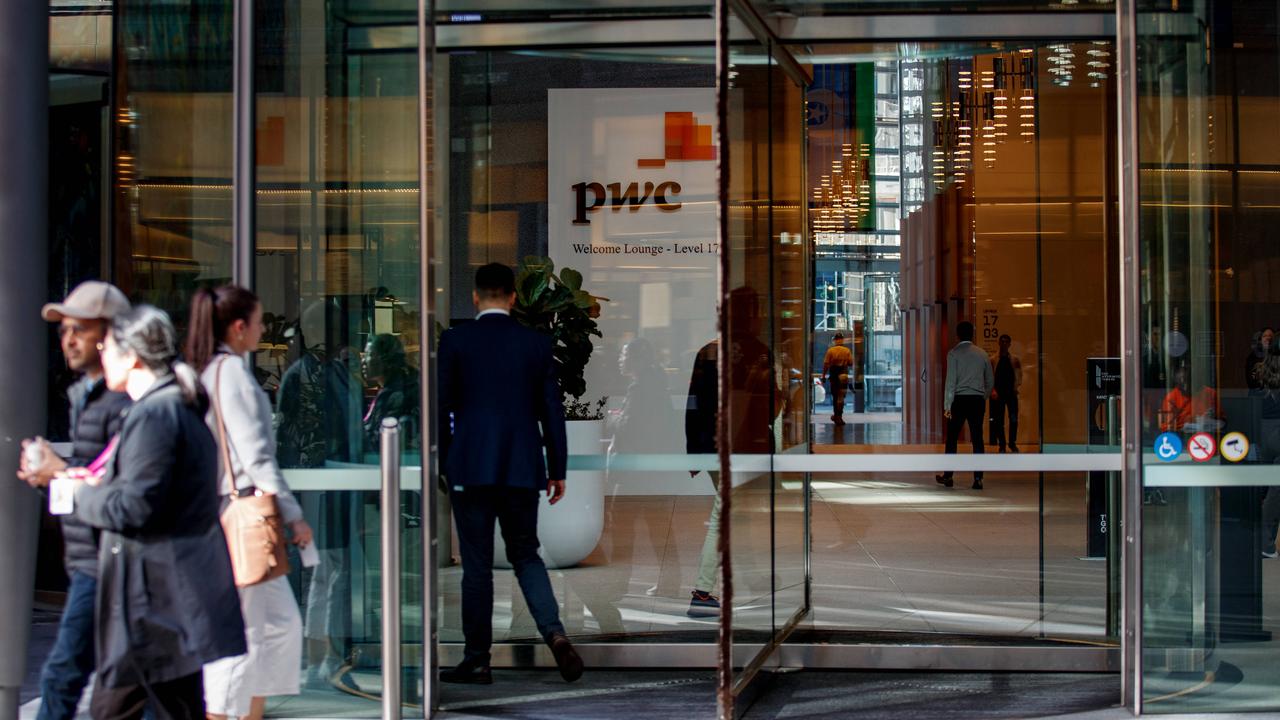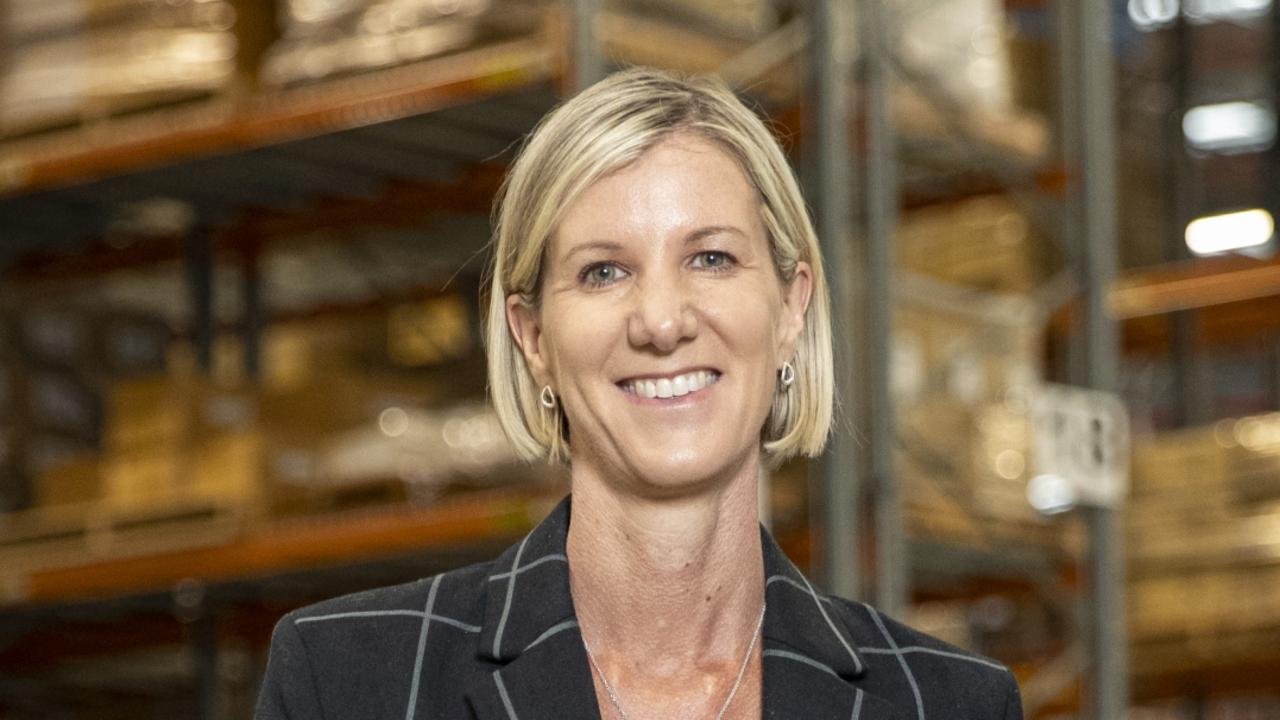The Australians leapfrogging Elon Musk in the $9bn battle to control the mind
Synchron counts Bill Gates and Jeff Bezos among its investors and has demonstrated its brain computer interface can be used safely by people with paralysis.
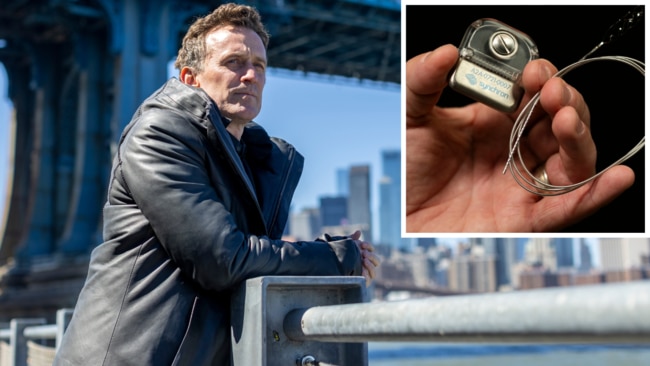
Six people fitted with Synchron’s brain computer face have experienced no adverse effects during a 12-month trial, paving the way for a bigger study, as the Melbourne-founded company leapfrogs Elon Musk’s Neuralink in the battle to control the mind.
Neuralink – which has raised more than $US600m to invest in research – has implanted its chip in the brains of two people, saying it has overcome earlier setbacks that almost derailed its first patient’s implant after its performance deteriorated.
Synchron is more advanced than Mr Musk’s venture and uses a less-invasive procedure – which is similar to installing a stent – to allow people to perform a variety of tasks with their thoughts. It’s a market that is expected to hit $US6.2bn ($9bn) by the end of the decade, with a compound annual growth rate of 17.8 per cent, according to Grandview Research.
Synchron counts Bill Gates and Jeff Bezos as investors. It completed its study across three clinical sites: Mount Sinai Health System in New York, University of Buffalo and University of Pittsburg, and involved people with severe chronic bilateral upper-limb paralysis.
Synchron has integrated its brain-computer interface (BCI) in Amazon Alexa – the tech titan’s voice assistant – allowing people with paralysis to control their smart home devices such as lights, speakers and TVs.
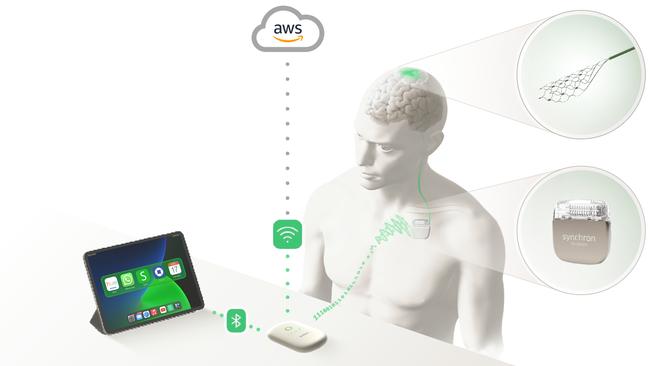
Australian-born Synchron chief executive Thomas Oxley said the Alexa partnership capped off a trifecta – with Synchron also plugging its BCI into OpenAI’s ChatGPT and Apple’s Vision Pro – and showed how a BCI can control text, touch and speech inputs by simply “thinking about it”.
“Alexa typically needs voice, Apple Vision Pro typically needs hands gestures and OpenAI typically needs typing. A novel BCI lets you do all these things without the need for the body to engage in typical ways,” he said.
“It’s the very beginning. We’ve got a long way to go but it’s exciting the engagement we’re having with big tech. It’s going to make technology available to a much larger number of people who traditionally have not been able to engage with these systems.”
At this stage, patients need to look at an Amazon Fire tablet to control their smart devices via Alexa. But Dr Oxley said in the future that may not be necessary.
“That would be a natural progression,” he said when asked if patients would no longer need to use their BCI with a tablet.

But even how the technology functions has sparked excitement among patients.
Mark, a 64-year-old with amyotrophic lateral sclerosis says being able to turn off lights, make video calls and play music – hands and voice free – had given him greater autonomy,
“To be able to manage important aspects of my environment and control access to entertainment gives me back the independence that I’m losing,” he said.
An Amazon spokeswoman said the Synchron partnership showed how the company was striving to make technology that’s “accessible and empowering”.
“We believe every person should have access to everyday technology they want and need, in a way that works best for their life,” the spokeswoman said.
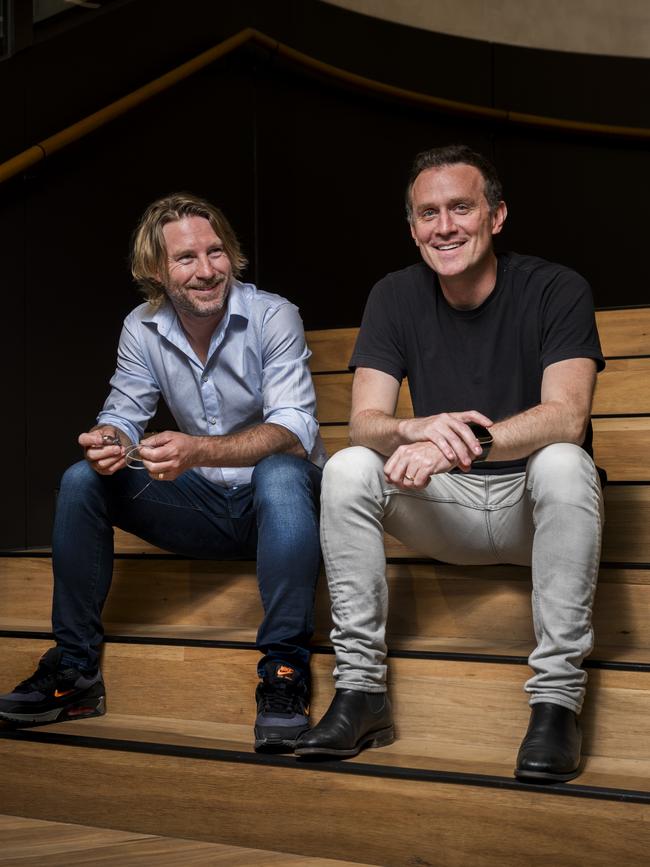
“The work that Synchron is doing for people living with paralysis is groundbreaking. Alexa can help build independence and provide access to tools for people living with paralysis to live confidently in their homes. We look forward to seeing the results of the trial and are encouraged by the positive feedback shared by participants already.”
Dr Oxley, who founded the company with Nick Opie, both of whom studied at the University of Melbourne, has praised Mr Musk for entering the space, saying it lifted the technology’s profile.
Unlike Synchron, Neuralink’s chip requires an invasive surgical procedure that involves using a robot to insert the implant into the motor cortex – the part of the brain that controls movement.
Tess Skyrme, senior technology analyst at IDTechEx, said there would be an “evolving opportunity for both non-invasive and invasive technologies across the next 20 years”.
“We anticipate that the market for non-invasive solutions will grow before the commercialisation of invasive solutions from players such as Neuralink,” Dr Skyrme said.
“However, the long-term opportunity within the assistive technology market is more likely to be captured by the likes of Elon Musk. Yet, at this stage, the floor is open not only for Neuralink but also for its many competitors.”
More Coverage
Originally published as The Australians leapfrogging Elon Musk in the $9bn battle to control the mind




